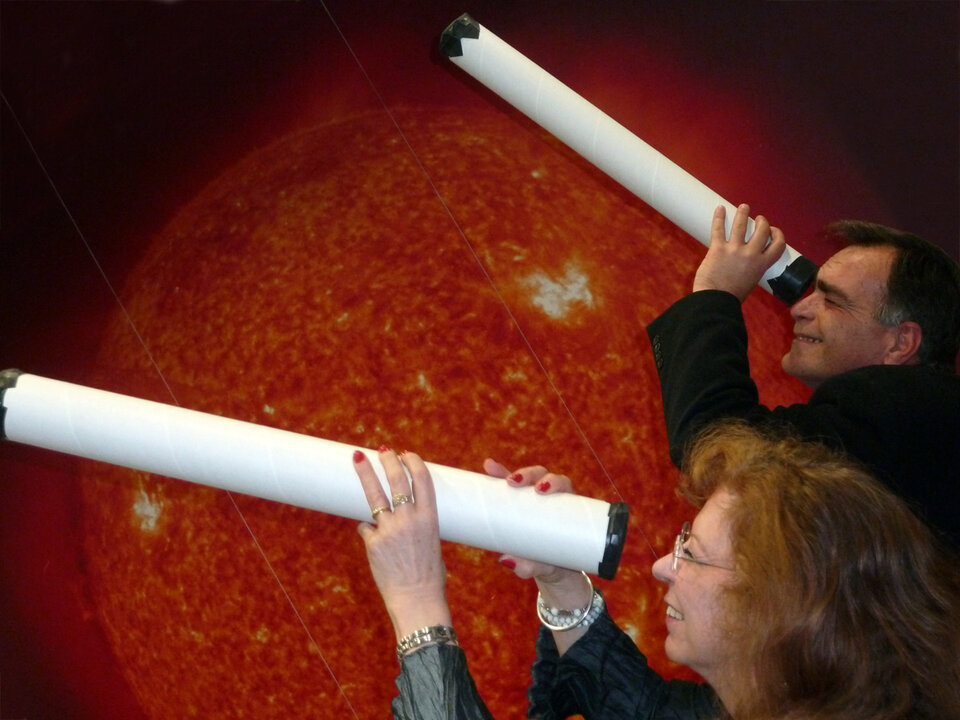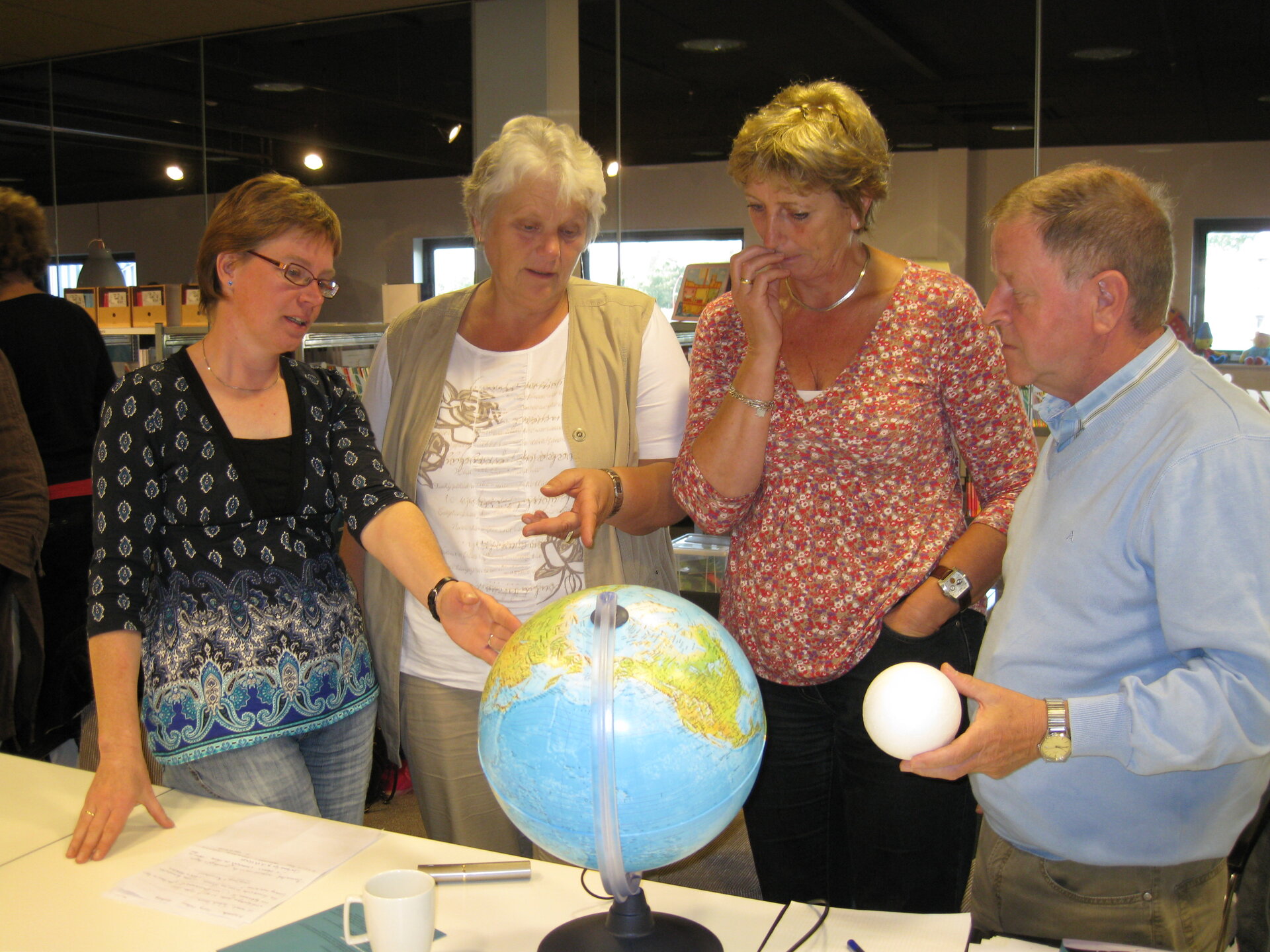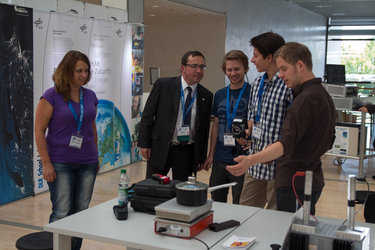Don’t miss September deadline for two new teacher training workshops
Are you a secondary school teacher in STEM disciplines? Would you like to learn how to use astronomy and earth-observation data to teach sciences and maths in the classroom? Then don’t miss these two exciting opportunities.
Living Planet Symposium School Lab
Jointly organised by ESA, the UK Space Agency and the DLR German Aerospace Center, the Living Planet Symposium School Lab offers teachers and students a hands-on experience to learn about the science and technology of satellite Earth observation through demonstrations, experiments and practical computer sessions.
The sessions will be held at the Edinburgh International Conference Centre, UK, from 9 to 12 September 2013, during ESA’s largest scientific conference of the year, the Living Planet Symposium.
Places are still available for teachers and students wishing to participate. To know more and find out how to apply follow this link.
Astronomy: online labs for inquiry minds

NUCLIO (Portugal) together with University of Twente (The Netherlands) and University of South Wales (UK) organises a five day international workshop for teachers introducing inquiry learning methods and the use of online laboratories using modern topics of Astronomy while targeting important physics and math concepts.
The workshop will take place at the University of Twente in Enschede, Netherlands, from 11 to 15 April 2014 and it is open to teachers from European countries having a national representative for the Comenius/Gruntvig Programme.
The deadline to apply for funds is 17 September 2013. For more information and indications follow this link.
The ‘Astronomy: Online Labs for Inquiry Minds’ training session falls in the framework of the Go-Lab project funded by the EC, with ESA as a partner. The project offers a federation of remote laboratories, virtual experiments, and data-sets (together referred to as ‘online labs’), as well as facilities to embed these online labs in pedagogically structured learning spaces by teachers. Go-Lab leverages on existing online lab repositories and increases their accessibility by offering lightweight end-user interfaces.






